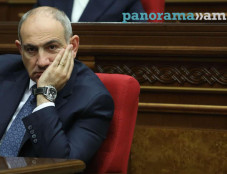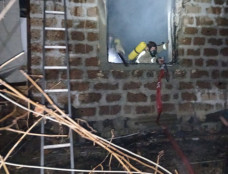
Freedom House reflects on Civil Contract's misuse of administrative resources at 2023 Yerevan elections
During the campaign for the Yerevan City Council elections in 2023, local observers and independent media observed widespread misuse of administrative resources in favor of Armenia’s ruling Civil Contract party, Freedom House says in its new report Nations in Transit 2024.
They included the engagement of district heads and their deputies in the campaign on questionable legal grounds, significant publicly funded urban renewal projects during the campaign that were seen as an attempts to influence voters, organized participation of the staff of the municipal and national administrative and educational institutions in rallies organized by Civil Contract, and unprecedented increases in municipal spending on various mass celebratory events featuring the ruling party candidates.
“The Yerevan City Council elections were 2023’s main event in terms of domestic politics, and could be regarded as an intermediate test of confidence between the previous nationwide legislative vote in 2021 and the upcoming elections in 2026. While the opposition is known to be stronger in Yerevan compared to most other regions, Civil Contract still managed to gain more votes than any other party; however, it fell far short of the threshold of seats necessary to install a mayor,” the Washington-based watchdog recalls.
“In fact, even in coalition with a minority partner—the Republic Party—the city is now governed by a minority council. Civil Contract also flexed its political muscle in the city councils of smaller communities, where, in a few cases, it continued its practice of impeaching opposition mayors using dubious tactics. The electoral process generally received a positive evaluation from local and international observers. However, it was also marked by the abuse of administrative resources by the ruling party at a scale unprecedented since the Velvet Revolution.
"While one of the revolution’s most heralded gains has been the decoupling of politics from big businesses and oligarchs, 2023 showed concerning signs of a reversal on that front. In particular, two separate investigative reports shed light on the lack of transparency regarding Civil Contract’s sources of funding. Even more concerning, law enforcement agencies cleared Civil Contract of any wrongdoing, while Pashinyan apologized but said his party had not broken any laws," reads the report.
"Two independent investigations conducted by the Armenian news outlets Infocom and CivilNet—the latter working in cooperation with the international Organized Crime and Corruption Reporting Project (OCCRP) network—and released in early 2024 have revealed strong indications of political corruption.7 According to the reports, Civil Contract may have bypassed party financing rules and utilized unlawful mechanisms for fundraising in 2022 and 2023. Notably, the investigations found that a large portion of individuals listed as Civil Contract donors were not aware of donations made on their behalf, that the donated amounts in many cases exceeded the donors’ income, and that purportedly individual contributions had been made in a coordinated manner. In other words, the real sources of these funds are unknown, making Armenia’s ruling party unaccountable to the country’s everyday citizens and signaling the return of oligarchs’ influence, albeit in a hidden form. Additionally, the reports revealed some overlap between the donors and big businesses benefiting from government tenders. Khachatur Sukiasyan, a Civil Contract deputy in the National Assembly, and his family together own a majority stake in Armeconombank, the bank that was involved in facilitating the donations.8 The Prosecutor’s Office, in loyal solidarity with the ruling party, has dismissed the reports," Freedom House says.
Related news
Newsfeed
Videos






























